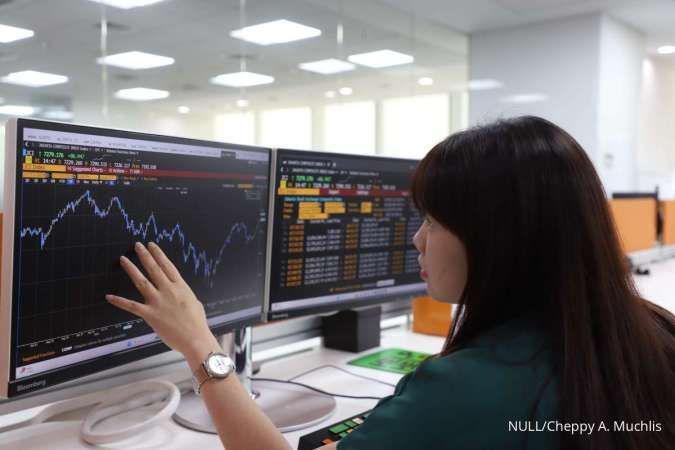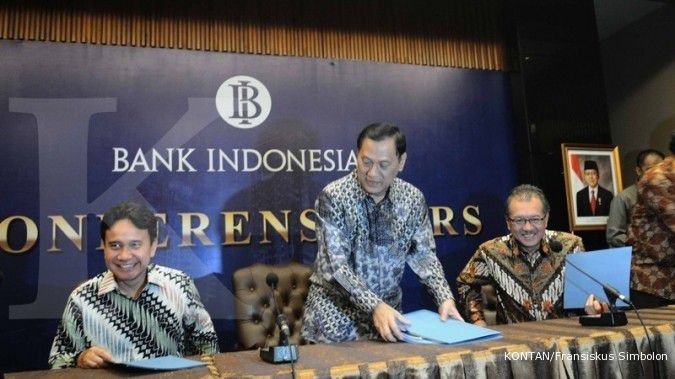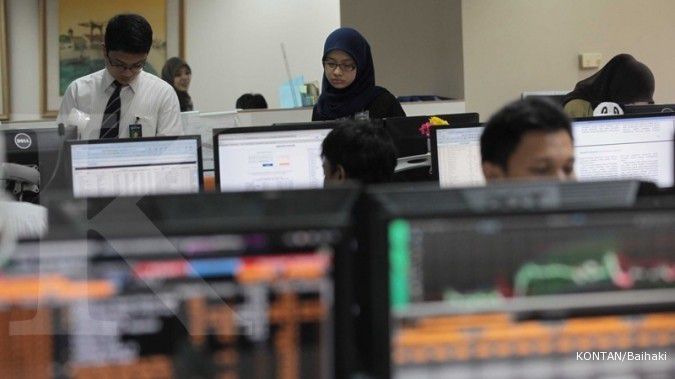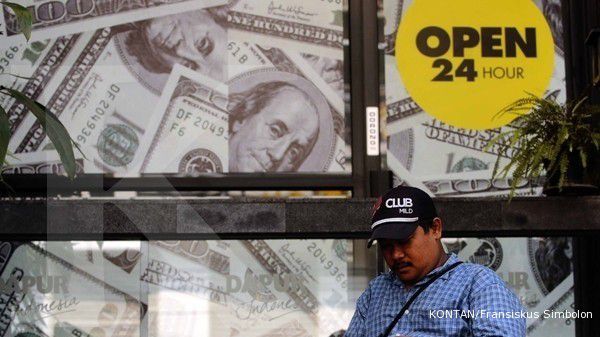JAKARTA. After experiencing a downward trend in the first three months of the year, Indonesia’s annual inflation picked up slightly in May on higher prices of processed food, housing and utilities. However, analysts say the central bank is likely to maintain its benchmark rate as the pace was within its expectations. The consumer prices index (CPI) accelerated to 7.32 percent in May after easing to 7.25 percent in the previous month as the cost of processed food, non-alcoholic beverages, tobacco, rent and wages climbed, the Central Statistics Agency (BPS) said on Monday. A rise in the cost of these items resulted in 0.16 percent inflation in May, bringing year-to-date inflation to 1.5 percent. The upward movement, however, is in line with Bank Indonesia’s (BI) projection that monthly inflation would range between 0.09 and 0.1 percent in May. BI aims to maintain this year’s inflation hovering between 3.5 and 5.5 percent, much lower than the 8.38 percent recorded last year, which was particularly attributed to a mid-year spike in fuel prices. The rise in the CPI should not put much pressure on the central bank’s 7.5 percent key interest rate thanks to a sufficient food supply as harvests had been good so far, BI Governor Agus Martowardjojo said recently. Indonesia, Southeast Asia’s biggest economy, relies heavily on domestic consumer spending and significant pressure on prices could erode the country’s overall growth. In addition to surging headline inflation, core inflation — which excludes volatile food prices and government-administered prices — also continued to climb for the fifth consecutive month, hitting 4.82 percent, another record level since last December. The rise in core inflation stems from stronger demand for air transportation and train services due to a series of public holidays in May, according to the BPS. Following the inflation announcement, analysts also said that the mild increase in inflation and potential further rises in the upcoming months would not lead BI to raise its key rate in the next policy meeting. Bank Danamon economists, Dian Ayu Yustina and Anton Hendranata, said that despite inflation quickening in May, there was no big pressure as the harvest season had increased food supply. Pertaining to energy costs, the government has compensated for the increase in energy spending of Rp 110 trillion (US$9.35 billion) in the 2014 state budget with a cutback on ministerial and institutional expenditure amounting to Rp 98.5 trillion, thereby removing the need to raise the fuel price. “As inflation remains on track and assuming that there will be no fuel price hike this year, we think BI will continue to maintain the BI rate at 7.5 percent until year-end,” they said in their research note. Standard Chartered economist Eric Sugandi shared a similar opinion, saying that the central bank would maintain its current rate although inflation would peak in the upcoming months due to massive consumer spending driven by specific events — the fasting month and Idul Fitri festivities, the school holidays and the start of a new academic year. “BI will keep its tightening policy but increasing its rate will not be an option because economic growth would be affected, while the effects of the rate rise last year have yet to fully materialize,” he said. BI might opt for an alternative policy like selling bonds, but this would not happen before Idul Fitri as a lot of liquidity would be needed to support more intensive economic activities, Eric added. (Linda Yulisman)
Inflation picks up on higher food prices
JAKARTA. After experiencing a downward trend in the first three months of the year, Indonesia’s annual inflation picked up slightly in May on higher prices of processed food, housing and utilities. However, analysts say the central bank is likely to maintain its benchmark rate as the pace was within its expectations. The consumer prices index (CPI) accelerated to 7.32 percent in May after easing to 7.25 percent in the previous month as the cost of processed food, non-alcoholic beverages, tobacco, rent and wages climbed, the Central Statistics Agency (BPS) said on Monday. A rise in the cost of these items resulted in 0.16 percent inflation in May, bringing year-to-date inflation to 1.5 percent. The upward movement, however, is in line with Bank Indonesia’s (BI) projection that monthly inflation would range between 0.09 and 0.1 percent in May. BI aims to maintain this year’s inflation hovering between 3.5 and 5.5 percent, much lower than the 8.38 percent recorded last year, which was particularly attributed to a mid-year spike in fuel prices. The rise in the CPI should not put much pressure on the central bank’s 7.5 percent key interest rate thanks to a sufficient food supply as harvests had been good so far, BI Governor Agus Martowardjojo said recently. Indonesia, Southeast Asia’s biggest economy, relies heavily on domestic consumer spending and significant pressure on prices could erode the country’s overall growth. In addition to surging headline inflation, core inflation — which excludes volatile food prices and government-administered prices — also continued to climb for the fifth consecutive month, hitting 4.82 percent, another record level since last December. The rise in core inflation stems from stronger demand for air transportation and train services due to a series of public holidays in May, according to the BPS. Following the inflation announcement, analysts also said that the mild increase in inflation and potential further rises in the upcoming months would not lead BI to raise its key rate in the next policy meeting. Bank Danamon economists, Dian Ayu Yustina and Anton Hendranata, said that despite inflation quickening in May, there was no big pressure as the harvest season had increased food supply. Pertaining to energy costs, the government has compensated for the increase in energy spending of Rp 110 trillion (US$9.35 billion) in the 2014 state budget with a cutback on ministerial and institutional expenditure amounting to Rp 98.5 trillion, thereby removing the need to raise the fuel price. “As inflation remains on track and assuming that there will be no fuel price hike this year, we think BI will continue to maintain the BI rate at 7.5 percent until year-end,” they said in their research note. Standard Chartered economist Eric Sugandi shared a similar opinion, saying that the central bank would maintain its current rate although inflation would peak in the upcoming months due to massive consumer spending driven by specific events — the fasting month and Idul Fitri festivities, the school holidays and the start of a new academic year. “BI will keep its tightening policy but increasing its rate will not be an option because economic growth would be affected, while the effects of the rate rise last year have yet to fully materialize,” he said. BI might opt for an alternative policy like selling bonds, but this would not happen before Idul Fitri as a lot of liquidity would be needed to support more intensive economic activities, Eric added. (Linda Yulisman)





